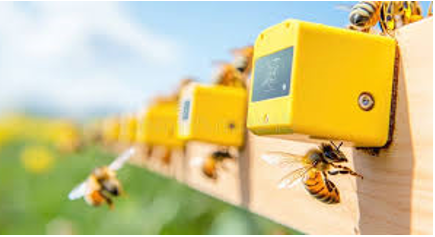From Hive to Table: The Untapped Potential of Pakistan’s Honey Industry

Our country is located in the Asian honey bees’ range, but on the Western end. The vegetative growth supports around 3.5 million bee colonies. Pakistan has three indigenous species of honey bees, i.e., the Asian Hive Honey bee, the Dwarf Honey bee, and the Rock Honey bee. Apis Mellifera colonies were later introduced. So, currently, there are four honey bee species popular in Pakistan.
The commercial beekeeping business in Pakistan is thriving in rural areas, helping women and men earn and find new job opportunities. Pakistani honey has a great reputation around the world because of its unique quality and taste.
Pakistan’s Unique Honey and its Growing Demand
The beekeeping business is booming because of its high revenue. Currently, the Government of Pakistan is also teaching beekeeping skills and providing bee boxes in rural areas to eradicate unemployment and to decrease the growing poverty rates.
According to HBRI (Honey Bee Research Institute in Islamabad), beekeepers in Pakistan possess exotic bee species and are earning six million dollars in foreign exchange yearly by exporting honey to Kuwait, the United Arab Emirates, and Saudi Arabia.
Moreover, the president of the All Pakistan Beekeepers Trade and Exporters Association mentioned that Pakistan produces 100% organic honey via modern bee farming. Thus, an increase in honey exportation among Middle Eastern countries like Kuwait, the UAE, and Saudi Arabia.
Pakistan was exporting 5.8 million dollars worth of honey every year, and it was predicted that the numbers would go up each year. However, beekeepers are facing numerous challenges these days due to climate change, floods, landslides, deforestation, and the use of pesticides.
Besides these challenges, beekeepers are still promoting others to join this lucrative business. Experts say that beekeepers are doing their best to produce the most organic honey; however, the government should take strict measures against pesticide use and deforestation.
Since the honey produced in Pakistan is praised by other countries because of its taste, texture, and quality, the Government should support beekeepers every step of the way to compete in the international honey market.
Honey Production and Use in Pakistan
Pakistan ranks 20th in the world for honey production, and it is not currently producing honey at a large commercial scale. The major exporters, processors, and wholesalers of honey operate in Karachi, Lahore, Islamabad, Rawalpindi, and Peshawar. In Pakistan, around ⅔ of the beekeepers and traders are Afghan nationals.
Our country is producing several kinds of honey, like Bair, Palusa, Kikar, Sperkai, Shaftalo, Garanda, Eucalyptus, Clover, Russian Olive, Sunflower, Orange Blossom, etc. Out of these varieties, Acacia and Sidr are greatly produced and are mostly exported.
As mentioned earlier, honey produced in Pakistan is usually exported to Middle Eastern countries. You must be thinking, why is honey produced in Pakistan only exported to the Middle Eastern countries? It is because our country is unable to produce high quality honey required by the high-end export markets.
Moreover, according to a survey, Pakistan is not health-conscious, and its demand usually increases during the winter season, when honey is usually taken as an immunity booster.
Pakistan’s Honey Industry Has Potential – Ending Note
The locally produced honey, although raved about, is not up to par to export it to the US, and other Asian and European countries. The beekeeping business in Pakistan is profitable and has the potential to drive economic contributions.
However, our government has to pay attention and support local beekeepers. Moreover, provide them with proper storage facilities, proper equipment, and laboratory facilities for quality testing. In addition, planting of specific trees and flora can also improve the quality and honey production.
The support from our government to provide more incentives can boost the beekeeping business and could improve the quality standards of the honey produced in Pakistan to be exported to the European market.
